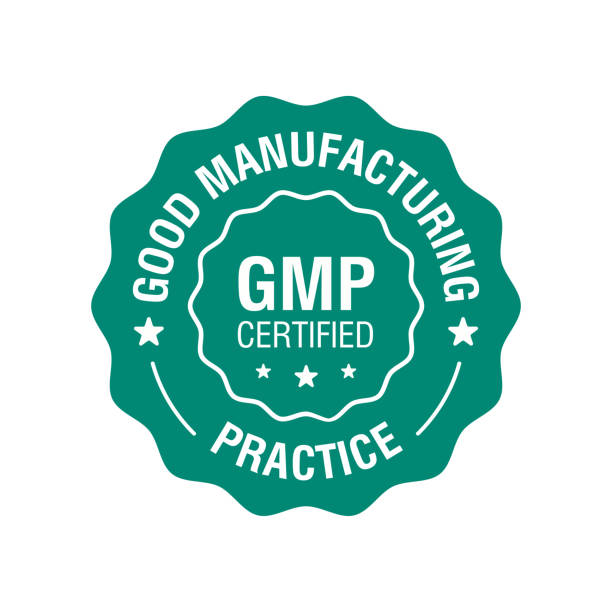
As experts in the field of health and wellness, we recognize the paramount importance of making informed decisions when it comes to choosing supplements. In today\’s fast-paced world, an increasing number of individuals are turning to supplements to support their well-being and fill in nutritional gaps. However, with the plethora of information available online, it can be challenging to separate fact from fiction and find accurate, reliable information. That\’s why we are here to guide you through the world of supplements, providing you with detailed insights and practical advice so you can make the best choices for your health.
The Growing Popularity of Supplements

The use of dietary supplements has witnessed a remarkable surge in popularity over the past decade. People from all walks of life are becoming increasingly health-conscious and are actively seeking ways to enhance their overall well-being. The supplement industry has responded to this growing demand by offering a vast array of products, ranging from essential vitamins and minerals to herbal extracts and specialty formulas targeting specific health concerns.
Understanding Supplements: What They Are and What They Aren\’t

Before delving into the vast universe of supplements, it\’s crucial to gain a comprehensive understanding of what supplements are and, perhaps more importantly, what they are not. Supplements, in their essence, are designed to complement a balanced diet and are not meant to serve as substitutes for whole foods. They contain concentrated forms of nutrients that may be lacking in your regular diet, offering a convenient and accessible way to meet specific nutritional needs. However, it\’s essential to remember that supplements cannot work miracles on their own, and a healthy lifestyle, including a well-balanced diet and regular exercise, remains paramount for achieving optimal well-being.
Navigating the Sea of Information

When it comes to researching supplements, the internet can be both a blessing and a curse. On one hand, it provides a wealth of information at our fingertips, allowing us to access a vast repository of knowledge with ease. On the other hand, not all information is created equal, and sifting through the abundance of data can be an overwhelming and arduous task. To make informed decisions about supplements, it\’s crucial to rely on credible sources and authoritative websites when seeking information.
Identifying Credible Sources

In the digital age, the internet serves as a hub for information dissemination. While this is advantageous in many ways, it also opens the door to misinformation and misleading claims. To make educated decisions about supplements, it\’s imperative to identify credible sources of information. Look for websites that are run by healthcare professionals, registered dietitians, or reputable organizations with expertise in the field of health and wellness. Websites that reference scientific studies and provide evidence-based information are more likely to offer reliable insights.
Beware of Misleading Claims
As the demand for supplements continues to grow, so does the prevalence of marketing tactics that may exaggerate the benefits of products. Consumers must approach supplement-related claims with a discerning eye. Be cautious of extravagant promises that sound too good to be true, as no single supplement can provide a magical solution for all health concerns. A balanced approach, combining supplements with a healthy lifestyle, is the key to achieving overall well-being.
Different Types of Supplements and Their Benefits
Supplements come in various forms, each catering to different nutritional needs and health objectives. Here are some common types of supplements and their potential benefits:
1. Multivitamins

Multivitamins are one of the most widely used supplements globally. They typically contain a combination of essential vitamins and minerals necessary for maintaining optimal health. Multivitamins are particularly beneficial for individuals with busy schedules or those who may not meet their nutritional requirements through food alone.
2. Omega-3 Fatty Acids

Omega-3 fatty acids are essential fats that play a vital role in supporting heart health, brain function, and overall well-being. These healthy fats can be found in fish oil supplements and have been linked to various health benefits, including reducing inflammation, supporting cardiovascular health, and promoting cognitive function.
3. Vitamin D

Vitamin D, often referred to as the \”sunshine vitamin,\” is crucial for bone health and plays a significant role in immune function. Many people may have a deficiency in this vitamin, especially those living in regions with limited sunlight exposure. Vitamin D supplements can help bridge this gap and support overall health.
4. Probiotics

Probiotics are beneficial bacteria that support gut health. They play a crucial role in maintaining a balanced gut microbiome, which is essential for digestion and overall immune function. Probiotic supplements are particularly helpful for individuals with digestive issues or those taking antibiotics, as they can help restore the balance of beneficial bacteria in the gut.
5. Herbal Supplements

Herbal supplements are derived from plants and have been used for centuries to support various aspects of health and well-being. Each herbal supplement offers unique benefits, depending on the plant it is derived from. For example, echinacea is often used to support the immune system, while valerian root may promote relaxation and improve sleep quality.
Consulting with Healthcare Professionals

While supplements can provide valuable nutritional support, it\’s crucial to approach their usage with care and responsibility. Before incorporating any new supplements into your daily regimen, it\’s essential to consult with healthcare professionals, especially if you have underlying health conditions or are taking medications. A qualified healthcare provider can assess your individual needs, medical history, and health goals to recommend the right supplements for you.
Safety Considerations

While supplements can offer numerous health benefits, it\’s essential to prioritize safety. Not all supplements are regulated by the same standards as pharmaceutical drugs, and the quality can vary between brands. To ensure safety and effectiveness, choose supplements from reputable companies that adhere to good manufacturing practices (GMP). Additionally, follow the recommended dosage instructions and avoid exceeding the recommended daily intake unless advised by a healthcare professional.
Navigating Supplement Interactions

One critical aspect of supplement usage that often goes overlooked is the potential for interactions between supplements and medications. Some supplements can interfere with the absorption or effectiveness of certain medications, while others may intensify their effects. It\’s essential to inform your healthcare provider about all the supplements you are taking to ensure there are no adverse interactions with your medications.
Understanding Dosage and Timing

The timing and dosage of supplements can significantly impact their effectiveness. Some supplements are best taken with food to enhance absorption, while others are more effective when taken on an empty stomach. Additionally, certain supplements may be better suited for morning or evening consumption based on their intended effects. Always follow the dosage and timing recommendations provided on the supplement\’s packaging or as advised by your healthcare professional.
Reading Supplement Labels

The information provided on supplement labels can be a valuable tool for consumers to make informed decisions. Understanding how to interpret supplement labels is essential for assessing the potency, ingredients, and potential allergens present in the product. Look for essential information such as the serving size, active ingredients, and any added fillers or artificial components.
Being Mindful of Expiry Dates

Supplements, like any other consumable product, have a shelf life. Over time, the potency and efficacy of supplements may diminish, making them less effective or potentially harmful. Always check the expiry date on supplement containers and avoid using any products beyond their
indicated shelf life.
Customizing Supplements to Individual Needs

Individuals have unique nutritional requirements based on factors such as age, gender, lifestyle, and overall health status. What works for one person may not necessarily be suitable for another. Tailoring supplements to individual needs ensures that you are addressing specific nutritional gaps and health concerns effectively.
The Role of Supplements in Specific Health Conditions

Supplements may play a beneficial role in managing certain health conditions. For example, individuals with iron deficiency anemia may benefit from iron supplements, while pregnant women may require prenatal vitamins to support fetal development. Always consult with your healthcare provider to determine whether supplements can complement your treatment plan.
The Importance of Clinical Evidence

While many supplements boast a wide array of health claims, it\’s essential to prioritize those backed by scientific research and clinical evidence. Clinical studies provide objective data on the safety and efficacy of supplements, giving consumers greater confidence in their choices. Look for supplements with scientifically proven benefits, and do not hesitate to ask your healthcare provider for recommendations based on clinical evidence.
Avoiding Mega-Dosing

Mega-dosing refers to the practice of taking excessively high doses of supplements in the belief that it will yield greater benefits. However, this approach can be dangerous and may lead to adverse effects. Always follow the recommended dosage guidelines, as exceeding them can pose health risks and have unintended consequences.
Pregnancy and Supplements

During pregnancy, the nutritional needs of both the mother and the developing baby increase. Prenatal vitamins can help meet these increased requirements and support the healthy development of the fetus. However, it\’s essential to consult with a healthcare provider before starting any supplements during pregnancy to ensure they are safe and appropriate for both the mother and the baby.
The Impact of Diet on Supplement Efficacy

A well-balanced diet is the foundation of good health and can significantly impact the efficacy of supplements. Nutrients from whole foods are generally better absorbed and utilized by the body compared to those from supplements. While supplements can be beneficial for filling nutritional gaps, they should never replace a healthy diet. Aim to maintain a varied and balanced diet to support overall well-being.
Supplement Quality and Transparency

The quality and transparency of supplement manufacturers are critical factors in ensuring the safety and efficacy of their products. Reputable supplement companies prioritize quality control, adhere to rigorous manufacturing standards, and provide transparent information about their products. Look for supplements that have undergone third-party testing and are certified by reputable organizations.
The Power of Reviews and Testimonials

In addition to relying on credible sources and scientific evidence, customer reviews and testimonials can offer valuable insights into the effectiveness of supplements. Reading about other people\’s experiences can help you gain a better understanding of how a particular supplement may benefit you. However, remember that individual responses to supplements can vary, and what works for one person may not work for another.
Combining Supplements: Is it Safe?

While many individuals take multiple supplements to address different health concerns, it\’s essential to exercise caution when combining them. Some supplements may interact with each other, leading to reduced efficacy or adverse effects. To ensure safety and effectiveness, consult with a healthcare provider before combining supplements.
Regulation and Safety of Supplements

In various parts of the world, dietary supplements fall under different regulatory frameworks. In some regions, supplements are regulated as food products, while in others, they may be classified as drugs. Understanding the regulatory landscape in your country can provide insight into the safety and quality standards governing supplements.
Supplement Myths and Misconceptions

Over time, numerous myths and misconceptions have emerged surrounding the use of supplements. It\’s essential to dispel these myths and base decisions on accurate information. Common misconceptions include the belief that all supplements are safe, or that taking more supplements equates to better health. Always verify information and seek advice from healthcare professionals to make well-informed choices.
Navigating Supplement Scams and Fraud

As with any popular industry, the supplement market is not immune to scams and fraud. Some products may make false claims, contain undisclosed ingredients, or be marketed deceptively. To avoid falling victim to supplement scams, always purchase products from reputable sources and be wary of deals that seem too good to be true.
The Global Supplement Market: An Overview

The supplement industry is a global market, with a vast array of products available to consumers worldwide. The United States, China, and Japan are among the largest markets for dietary supplements, with vitamins and minerals being the most widely consumed supplement categories. As the demand for supplements continues to grow, so does the need for accurate information and consumer education.
The Role of Healthcare Providers in Supplement Guidance

While consumers have access to an abundance of information, the guidance of healthcare professionals remains invaluable. Registered dietitians, nutritionists, and other healthcare providers can offer personalized recommendations based on individual health needs and objectives. If you are considering starting a new supplement regimen or have specific health concerns, consulting with a healthcare provider can help ensure you are making the best decisions for your well-being.
Building a Supplement Regimen

Crafting a supplement regimen that aligns with your health goals requires careful consideration. Consider the nutritional gaps in your diet, your lifestyle, and any health conditions you may have. A well-rounded approach that combines supplements with a balanced diet and regular exercise can yield the best results for your overall well-being.
The Importance of a Holistic Approach

Ultimately, the world of supplements is just one aspect of the broader landscape of health and wellness. A holistic approach to well-being encompasses various factors, including nutrition, physical activity, mental health, and stress management. While supplements can play a valuable role in supporting overall health, they are most effective when used in conjunction with a comprehensive and holistic approach to well-being.
Conclusion
In conclusion, navigating the world of supplements is an endeavor that demands careful consideration, research, and a discerning approach to information. The growing popularity of supplements has led to an abundance of information online, making it essential to prioritize credible sources and evidence-based data.
As you explore the realm of supplements, remember that they are intended to complement a balanced diet and a healthy lifestyle, not replace them. Consulting with healthcare professionals and prioritizing safety are crucial steps in making informed decisions about supplement usage.
With the right knowledge and guidance, supplements can serve as valuable tools in supporting overall health and well-being. Tailor your supplement regimen to meet your individual needs, and always prioritize quality and transparency when selecting products.
By staying informed, exercising caution, and taking a holistic approach to well-being, you can confidently navigate the world of supplements, separating fact from fiction and making choices that contribute to your overall health and vitality.
